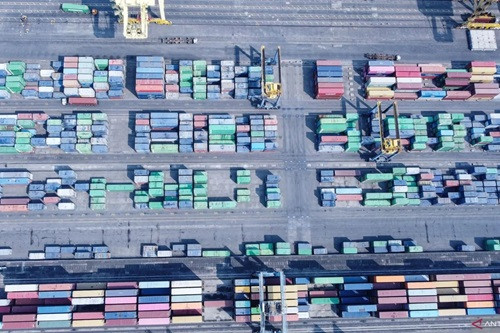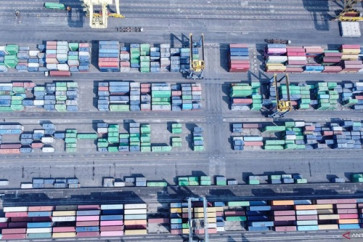Popular Reads
Top Results
Can't find what you're looking for?
View all search resultsPopular Reads
Top Results
Can't find what you're looking for?
View all search resultsThe hidden obstacle: Logistics for 8 percent growth
Indonesia's logistics costs currently stand at a staggering 14.3 percent of its GDP, which is equal to around Rp 3 quadrillion (US$189 billion), virtually as much as our current annual national budget.
Change text size
Gift Premium Articles
to Anyone
A
chieving 8 percent economic growth, much higher than the average 5 percent over the past decade, and eradicating poverty to zero percent have been declared as the development goals of the Prabowo Subianto-Gibran Rakabuming Raka administration. To fulfill these goals, President Prabowo aims to achieve food and energy self-sufficiency within five years and accelerate the downstreaming of natural resources. While these aspirations are admirable, they are nearly impossible to accomplish without recognizing the unique role of logistics that is often-overlooked. This is a determining factor that we have yet to fully master.
Indonesia's logistics costs currently stand at a staggering 14.3 percent of its GDP, which is equal to around Rp 3 quadrillion (US$189 billion), virtually as much as our current annual national budget. Reducing these expenses would allow the country to deliver more high-priority national programs.
This burden is felt most especially in eastern Indonesia where logistics costs are conspicuously higher compared with the western provinces. For instance, building a simple house in Papua can cost around three times as much as building one somewhere in Java. Such differences demonstrate the difficulty of delivering products to more distant locations, which slows down growth and widens disparities in the development of various regions.
Furthermore, Indonesia's ranking in the World Bank's Logistics Performance Index 2023, at a modest 63rd out of 139 countries, highlights the nation's shortcomings in this sector. This ranking pales in comparison to other ASEAN countries like Singapore (ranking first), Malaysia (31st), Thailand (37th), the Philippines (47th) and Vietnam (50th).
The index evaluates six key dimensions of logistics performance: customs efficiency, infrastructure quality, international shipments, logistics services quality, tracking and tracing, and timeliness.
While making strides, Indonesia continues to lag behind in several dimensions, particularly in terms of timeliness, infrastructure quality and tracking and tracing. To achieve the ambitious goals of 8 percent economic growth and poverty eradication, Indonesia must prioritize addressing its logistics challenges. An effective logistics system is not just a tool to achieve one goal, but it is also the catalyst for overall national development, which includes the nation’s prosperity.
In order to overcome these obstacles and fully utilize the opportunity for national development, a comprehensive approach is required. The Indonesian Business Council (IBC) has highlighted logistics as one of the sectors that need enhancements and has provided the government with 15 policy recommendations to support the government's 2024-2029 development agenda.



















